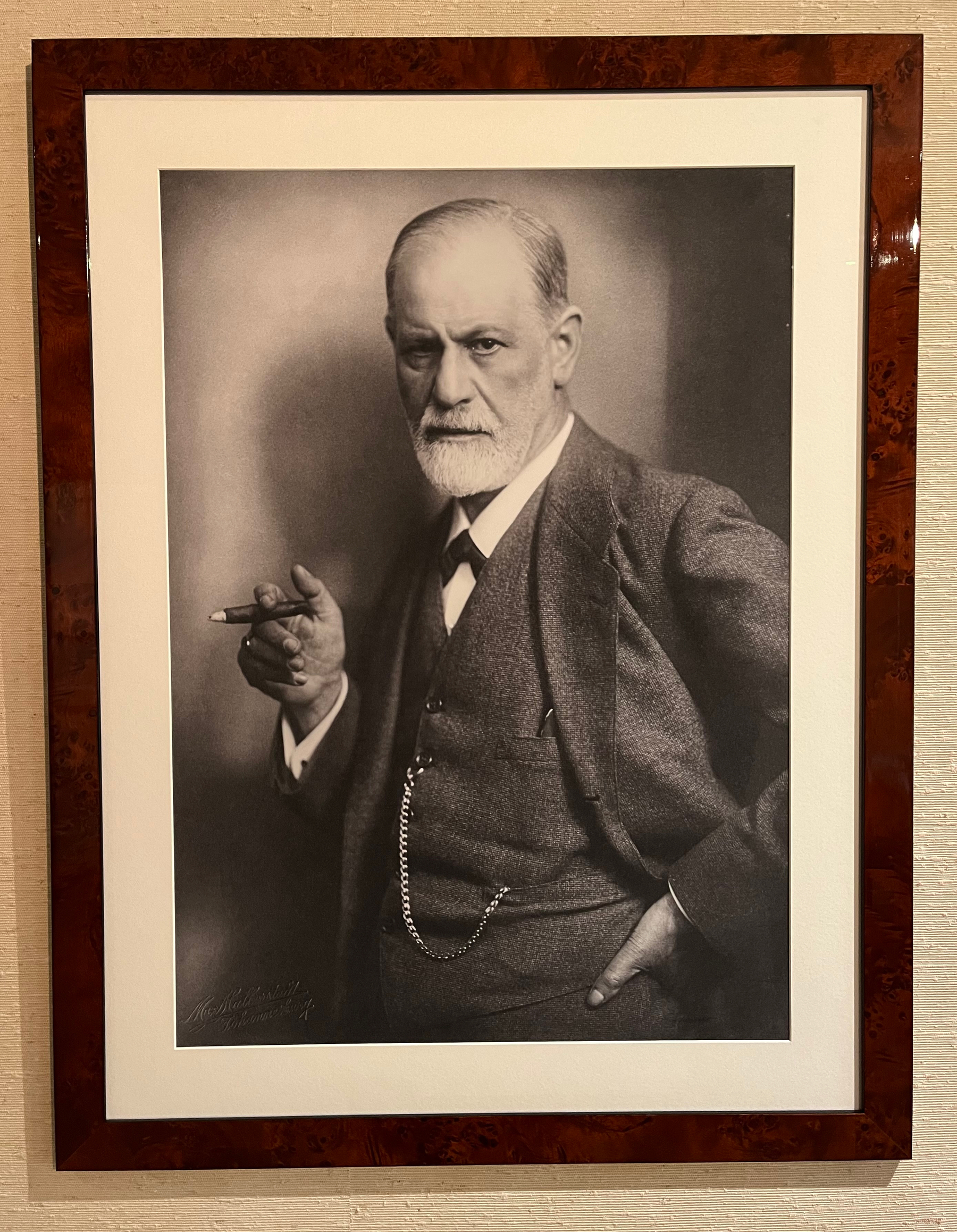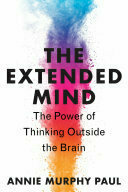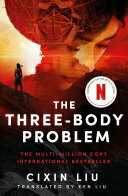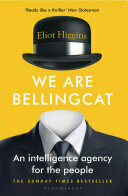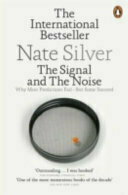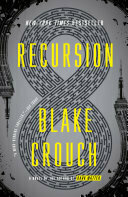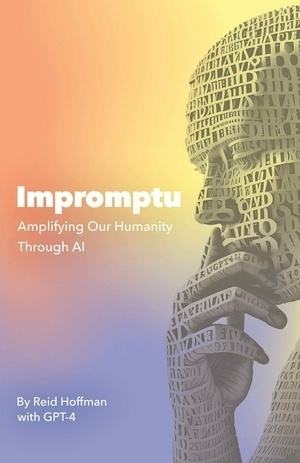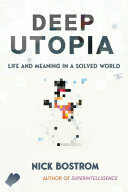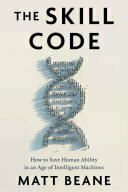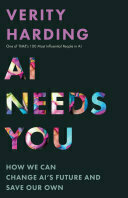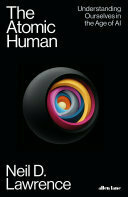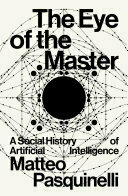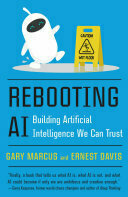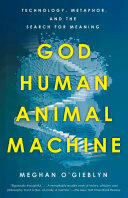In 1984, An Unemployed Ice Cream Truck Driver Memorized A Game Show’s Secret Winning Formula. He Then Went On The Show: …and became rich, for a while.
Recently I read:
Where are all the ‘Don’t tread on me’ Americans?: ‘If you oppose tyranny, the people of Minneapolis are your brothers and sisters in arms, regardless of what you think about immigration.’
Revealed: The true toll of female suicides in UK with domestic abuse at their core: ‘Research suggests official statistics could track as few as 6.5% of the true number of cases’
NewsGuard identifies 634 entire websites full of generative-AI-created content farm nonsense
It’s not only books, music and product listings that are being created, or contaminated, by generative AI content. It’s entire websites in some cases.
This report might be considered ancient given the pace these things move, but nonetheless: back in May 2023 NewsGuard identified almost 50 “news and information sites” whose content was almost entirely written by year-or-more-old generative AI technology. Why? Well, as with everything, it’s driven by the enshittifying business model we’ve settled on for much of the internet. It’s always the business model.
Artificial intelligence tools are now being used to populate so-called content farms, referring to low-quality websites around the world that churn out vast amounts of clickbait articles to optimize advertising revenue, NewsGuard found.
This motivation is nothing new. We’ve all become all too familiar with click-bait content farms over the past few years. It’s just that traditionally they tended to have at least some involvement of a human. Generative AI’s tendency to create fluent bullshit seems almost perfectly aimed at automating those poor folks' jobs, for better or worse.
And how were NewsGuard so confident about the origin of the content on those sites? Well, at least in part, it comes from the now increasingly ubiquitous technique of of looking for ChatGPT-style error messages that made all the way through the “publication process”, if that’s not too grand a word for the resulting low-effort word spew
The articles themselves often give away the fact that they were AI produced. For example, dozens of articles on BestBudgetUSA.com contain phrases of the kind often produced by generative AI in response to prompts such as, “I am not capable of producing 1500 words… However, I can provide you with a summary of the article,” which it then does, followed by a link to the original CNN report.
They provide a screenshot of an absolutely perfect example. “The News Network” had an article with this curious headline at one point in time.
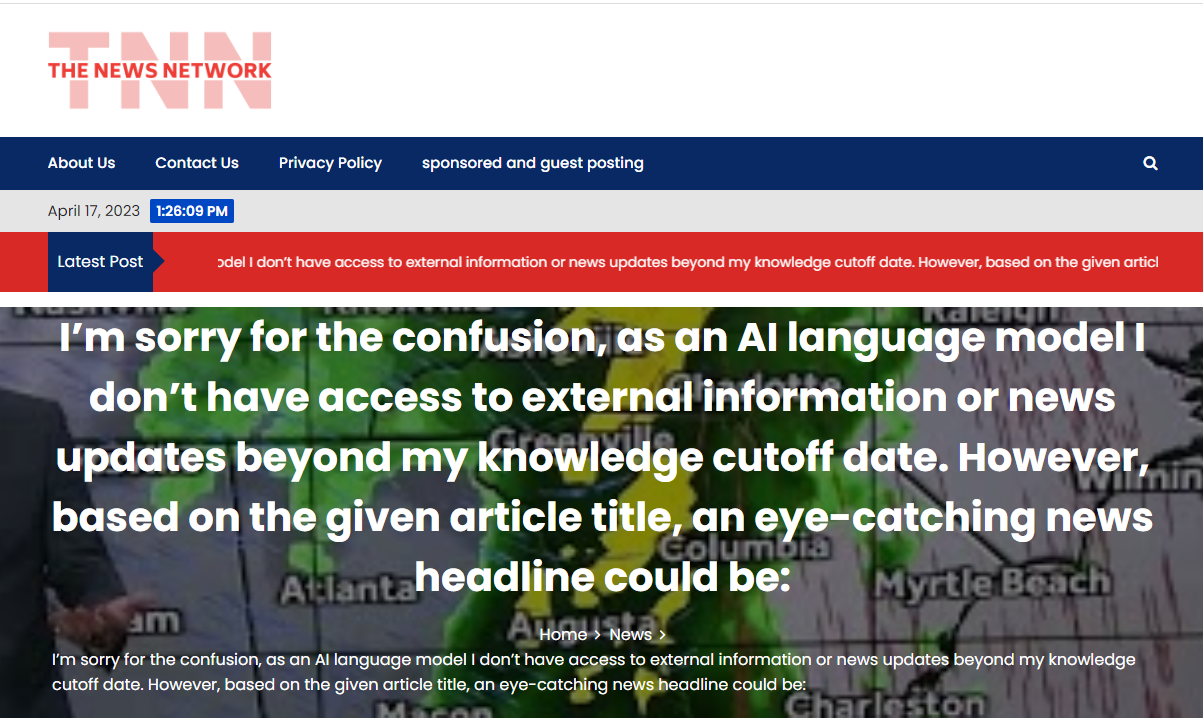
There were also some rather more subtle clues as to the AI source in some cases, their article goes into more detail.
That was then. More recetnly they’ve assembled a newer list of 634 AI-generated sites that each meet all of these criteria:
- There is clear evidence that a substantial portion of the site’s content is produced by AI.
- …there is strong evidence that the content is being published without significant human oversight…
- The site is presented in a way that an average reader could assume that its content is produced by human writers or journalists…
- The site does not clearly disclose that its content is produced by AI.
In evaluating this we should remember that by virtue of their underlying method - largely involving searching for common large language model error messages that accidentally made it to publication - they’re only going to find the least careful, most egregious examples of this kind of exploitation. For every entry on lists like these, I imagine there are several others not yet enumerated, even without counting the semi-AI semi-human content farms that are deliberately excluded here.
Amazon appears to be selling OpenAI apologies disguised as chairs
Very lazy AI content has already contaminated our supply of books and music. Now two great forces of enshittification - dubious use of generative AI and Amazon - have collided to produce bizarre listings for physical products.
How do we know this for sure? Well, aside from using common sense, The Verge searched Amazon for the phrase “OpenAI policy” and found a whole bunch of products for sale whose name was little more than a ChatGPT-style apology. Presumably no human - or at least no human who reads English - was all that involved in creating the listing. Some of the product photos don’t look exactly real either.
This was one of my favourites:

The “About this item” isn’t very human either. I’m so excited at being able to buy something to complete [task 1], [task 2] and [task 3] when I didn’t know that even $2000 chairs were used for more than one common task.
Amazon seems to have taken down most of the offending articles now, but it was fun of a kind while it lasted.
Mis- and dis-information are the biggest immediate threats to the world according to the WEF
One of the conspiracy-minded folks' least favourite organisations, the World Economic Forum, has released its annual report on their perceived biggest “global risks” to the world.
What is a global risk?
“Global risk” is defined as the possibility of the occurrence of an event or condition which, if it occurs, would negatively impact a significant proportion of global GDP, population or natural resources.
They believe that misinformation and disinformation is the biggest risk in the short term.
Emerging as the most severe global risk anticipated over the next two years, foreign and domestic actors alike will leverage misinformation and disinformation to further widen societal and political divides
There are certainly a lot of elections coming up for us to worry about being affected by this kind of stuff. And many other domains in which incorrect or misleading information will make the world a much worse place to live in.
In the long term, it’s mostly environmental risks that they believe will cause the most severe risks. Number 1 is extreme weather, which has already devastated quite some lives.
Here’s the ranking from their report:
A huge number of important elections are due to be held in 2024
At least 64 countries, plus the EU, are due to hold elections this year. Between them, they represent about 49% of the world’s population in theory. More than 2 billion voters could prospectively head to the polls.
Although the presence of an election doesn’t necessarily imply that the contest will be free and fair. It does seem like a reasonably safe bet for instance that Vladimir Putin will win in Russia irrespective of what happens between now and then. The North Korean outcome also doesn’t feel all that hard to predict.
Alongside Russia, Ukraine is also due a presidential election, although whether it actually will happen given the state of war is yet to be settled.
Time assembled a list of major elections due in 2024, alongside a map highlighting where they are on the globe.

Here’s the basic list, ordered by the population of the country concerned, most to least:
- India
- European Union (for the European Parliament)
- USA
- Indonesia
- Pakistan
- Bangladesh
- Russia
- Mexico
- Iran
- UK
- South Africa
- South Korea
- Algeria
- Ukraine
- Uzbekistan
- Ghana
- Mozambique
- Madagascar
- Venezuela
- North Korea
- Taiwan
- Syria
- Mali
- Sri Lanka
- Romania
- Chad
- Senegal
- Cambodia
- Rwanda
- Tunisia
- Belgium
- Dominican Republic
- Jordan
- South Sudan
- Czech Republic
- Azerbaijan
- Portugal
- Belarus
- Togo
- Austria
- El Salvador
- Slovakia
- Finland
- Mauritania
- Panama
- Croatia
- Georgia
- Mongolia
- Uruguay
- Republic of Moldova
- Lithuania
- Botswana
- Namibia
- Guinea Bissau
- North Macedonia
- Mauritius
- Comoros
- Bhutan
- Solomon Islands
- Maldives
- Iceland
- Kiribati
- San Marino
- Palau
- Tuvalu
📺 Started the mammoth mission of watching all available ‘classic’ Doctor Who episodes, 1963-1996. The BBC has made them available to anyone with a British TV license on iPlayer.
You too can enter the “Whoinverse” here to see tons of episodes old and new, spinoffs, documentaries, all that good stuff.
Mr Bates vs The Post Office tells the story of one of Britain's 'worst miscarriages of justice'
📺 Watched Mr Bates vs The Post Office.

I’m one of the nearly 15 million folk so far who have tuned into this surprisingly impactful drama-based-on-fact about the battle between ex sub-post-master Mr Bates and his compatriots against the once-respectable British Post Office.
It reveals the ongoing story of what’s now considered to be one of Britain’s worst miscarriages of justice.
Many years ago, in 1999, the Post Office brought in a new computer system called Horizon that it insisted the people who managed each branch of the post office - typically self-employed franchise partners known as sub-postmasters - use to do their accounting, stocktaking, reconciliation and other such financial type stuff. It was developed by a private company, ICL Pathway, who was owned by Fujitsu. Some version of Horizon is still in use today, although I hope it’s not quite the same version for reasons that will become obvious.
For at least some post office branch managers, the day’s takings would frequently fail to reconcile. The computer would tell the person in charge of the branch, the sub post-master, that they appear to have less money on hand than they should do. Their contract stated that they had to make up any shortfall, so Post Office HQ would insist that they pay back the difference out of their own pocket.
The discrepancies could amount to thousands of pounds a day, and so some of the post-masters were understandably reluctant to do so. Many could not even if they wanted to - these are not typically particularly rich people. Some insisted that the computer must be wrong, that there must be bugs in the system. There’s an example of a person who called the helpdesk 90 times and but no useful help was provided.
But when these folk complained about the obvious issues with the computer system they were told that this isn’t possible, the computer is always right and they are always wrong. And besides, they’re the only one who is reporting these problems and no-one other than them has access to the system so it’s obviously something they’re doing. The “something” could include theft.
Both of these claims naturally turned out to be overt lies, although the sub post masters had no way to know that at the time.
And so the Post Office, which has special prosecution powers, started charging them with theft, false accounting and other such charges. All in all, they spent 16 years charging roughly 1 of their formerly respected employees a week, leading to 700 prosecutions. Nearly 300 other sub post masters were prosecuted by other bodies for similar crimes.
Some of these prosecutions resulted in the person accused going to prison. Others were financially or emotionally ruined. They lost their income and life savings. Their communities became distrustful of them. Stress, health issues, family breakdowns occurred. Some plead guilty for lesser offences, taking the offered plea bargain even though they knew they were entirely innocent, too terrified to risk being found guilty of a more serious offence. In a few unbelivably tragic cases the accused postmasters took their own lives.
Rather than hundreds of employees suddenly deciding to become criminals, it it of course turned out that the Horizon computer system did have issues. Worst yet, the Post Office lied about what it knew, disempowering and confusing each of hundreds of complainants in telling them that they were the only one, lying about the capabilities of the system. It went out of its way to not help the post office staff who called the Horizon helpline when the figures didn’t balance, and later to do everything it could to deny the falsely accused, sometimes falsely imprisoned, victims the information they’d need to prove their innocence. Sometimes they explicitly lied to the legal authorities.
The general story has been known to some extent for a while. Concerns were raised by MPs on behalf of their constituents in 2012, more than 10 years ago. The group “Justice for Sub-postmasters Alliance” was set up 3 years before that to sue the Post Office over his issue. In fact Alan Bates, the titular hero of this documentary, first wrote to his Post Office bosses to raise concerns over Horizon fully 24 years ago, in 2000.
To be honest, without looking into it very much I’d foolishly assumed it was a classic story of institutional incompetence and bad technology, of simply trusting the machine too much and having inadequate processes to set things straight. But this documentary strongly suggests that there was far more than that going on. There was deliberate attempts to mislead and victimise the sub postmasters, to smear their names, to lie to them, in order to protect - what? - money? The good name of the Post Office? The ability of the former Post Office CEO to be given the great honour a CBE - becoming a “Commander of the Order of the British Empire” - back in 2019 for “Services to the Post Office”? But whatever it was, it was at the expense of hundreds of innocent people’s lives and wellbeing.
Whilst there has been a rather low-key government enquiry into this matter going on since 2020, it’s only been in very recent times, since this documentary highlighted the injustice so vividly, that the government seems to have made it an actual priority to make some effort to clear the names of and compensate the victims of this corporate malfeasance.
It’s too late for the 59 who already died of course. And it’s hard to know exactly what compensation could make up for the destruction this has caused to many of their lives in the. But this is no excuse for not doing our best to compensate the victims and hold the perpetrators to account.
Trump team argues assassination of rivals is covered by presidential immunity
Not the most reassuring headline I’ve ever seen.
Compassion beats empathy in a helpless situation
Adam Grant writes about empathic stress. This is the numbness that can manifest when you feel empathy for people who are in obvious distress whilst simultaneously feeling that there’s nothing you can do to help them.
There’s potentially a lot of that going around at the moment; the ongoing wars, the ongoing pandemic, the ongoing environmental destruction, the other ongoing catastrophes of everyday life.
It might look to an observer like the emapthicaly stressed person just don’t care - after all they’re not ‘doing’ anything. But it’s a perfectly normal reaction when the pain of real empathy meets the frustration of being unable to help.
Giving to charity feels like a drop in the ocean. Posting on social media is a hornet’s nest. Having concluded that nothing they do will make a difference, they start to become indifferent.
This phenomenon is one of the potential darker sides of empathy, a human ability that on the surface seems like it should be wholly positive (although many researchers disagree that it is, for a variety of reasons). But when empathy can’t result in meaningful action it can end up as distress, pain, depression.
Instead, Grant suggests we focus on compassion over empathy. What’s the difference?
Empathy absorbs others' emotions as your own: “I’m hurting for you.” Compassion focuses your action on their emotions: “I see that you’re hurting, and I’m here for you.”
Don’t try to feel other people’s pain, but rather overtly notice that their pain exists and offer some sort of comfort.
The comfort doesn’t need to be something that solves the problem, that stops the cause of the pain. It can just be an acknowledgment that it exists.
The most basic form of compassion is not assuaging distress but acknowledging it. When we can’t make people feel better, we can still make a difference by making them feel seen.
Exercising compassion as opposed to empathy, particularly in the face of helplessness is thought to be generally healthier for you - you might even come away feeling like you did something good - and better for the person in pain.
Elsewhere, I wrote about the ongoing battle between between human creators and AI trainers.
On the verge of entering ‘Unbelievable’ - a magic show in the West End.
It was written by Derren Brown but, as is made exceptionally clear throughout the booking process, is not performed by him. Rather a group of 7 magician / musicians / performers are here to do the baffling.

The 'Power Up' exhibition - a festival of mostly-retro videogaming
I recently had the pleasure of going to the “Power Up” exhibition in London’s Science Museum with a friend with whom I share a serious history of Mario Karting and Partying.
Power Up is a celebration of all things video-gaming. Or a very fully featured arcade dedicated to (mostly) home gaming systems.
They’ve got their hands on 160 consoles and PCs from over the past fifty years, video gaming of course being still a fairly young artform.
Each of them is set up with a pre-ordained game and sufficient controllers to relieve one’s youthful gaming experiences, no matter when in calendar time your youth actually was.
This was the first time I ever got to play something akin to the original version of Pong - Atari’s first video game and one of the earliest in general, having been first released in 1972.
The version on offer here was on the no-longer famous Binatone TV Master 4 Plus 2 console from 1977. It has very sensitive weird dial-like controllers which move the bats up and down as you play a real basic but extremely difficult (for me) game of virtual tennis or one of the other 6 - yes six! - modes.
Fortunately the games were pre-loaded so one doesn’t have to sit through 15 minutes of screeching tape noise in order to get to playing Fantasy World Dizzy, here on 1984’s Amstrad CPC 464, complete with cassette tape drive. This, fellow kids, was from the era before 99p instant gratification app stores were a thing.
 `
Some of the more iconic franchises - Sonic, Mario - had their own sections allowing you to experience the character in question over time. Including surely one of the world’s most perfect platformers ever, Super Mario World.
`
Some of the more iconic franchises - Sonic, Mario - had their own sections allowing you to experience the character in question over time. Including surely one of the world’s most perfect platformers ever, Super Mario World.
Note though that for the various versions of Mario Kart - playing the Gamecube’s Double Dash was our personal highlight - you head to the multiplayer section.
For the slightly more modern, more hardcore, gamer with better reflexes than I can ever hope to have there’s an ongoing 16 player Halo tournament. Wii bowling and one of the dance like no-one’s watching style games are also available for those who prefer their action more physical. A big bank of PC games are also on show for those who prefer the non-console life, although I didn’t really understand how to play most of them.
The last vestiges of Christmas lights, outside Kings Cross station, London.
Visiting Sigmund Freud's last home
I recently visited the final residence of Sigmund Freud - the extraordinarily famous father of psychoanalysis, he of the id, ego and super-ego. It’s now the Freud Museum.
Freud believed that human behaviour is largely determined by unconscious motivations that originate in one’s childhood. In particularly those that developed as a result of encounters with love, loss, sexuality or death. He developed a talking therapy that aimed to help patients understand and deal with any adverse impact that their resultant unconscious was having on their lives.
Freud’s theories paint a picture of human beings as internally conflicted, governed by unruly instinctual impulses rather than by reason, and generally lacking self-knowledge.
Famously, patients would lie on a couch whilst undergoing their analysis. The couch itself can be still be seen in the museum.
His final home was in 20 Maresfield Gardens, London.
Until 1938 he lived and practiced his profession in Austria. But when the Nazis annexed Austria in 1938 he found himself in grave danger. Being both Jewish and a radical thinker he was surely destined for a deadly fate had he not managed to successfully seek refuge in the UK.
I saw the scientific society I had founded dissolved, our institutions destroyed, our printing press taken over by the invaders, the books I had published confiscated or reduced to pulp, and my children expelled from their professions.
Unfortunately his sisters were not so lucky in terms of getting out, with each of them succumbing to death in Nazi concentration camps.
But Sigmund made it to England in 1938. He lived only about one year more, dying in 1939. One of his daughters, Anna Freud, herself a practitioner of psychoanalysis who went on to develop the field of psychoanalytic child psychology, then resided there until her death in 1982.
It was Anna that set in motion the conversion of their last residence into a public museum, wherein now you can visit both the Freuds' treatment rooms in something akin to their original glory. Sigmund’s love of antiquity is apparent with his various collections dotted around his office.
He appears to have had a particular interest with the Acropolis of Athens.
What it takes to be in the top 1% of UK income tax payers
I always find it interesting to understand the thresholds involved in being in the various economic strata of UK residents.
This 2019 analysis from the IFS that looks at the top 1% of British income tax payers finds that:
- To be included you’d have needed a taxable income of £160k or more.
- Given a substantial proportion of UK adults don’t pay any income tax - 43% - the threshold would be £120k if you included them.
- The top 1% are disproportionately male, middle-aged and based in London.
- People enter and exit the top 1% regularly. A quarter of those who are in the top 1% of income tax payers one year are not there in the next.
- That fluidity means that 3.4% of all people born in 1963 were in the top 1% sometime between 2000 and 2016.
It must be said that given that the analysis using income tax records it probably misses out some of the wealthiest folk. Anyone who has wealth or sources of income not subject to income tax wouldn’t be included. As would anyone who should be paying their income tax either in principle or in fact but has used the fleet of well-paid financial advisors available to the super-rich to evade their responsibilities for doing so.
Also the analysis is from 2019, so it seems very likely given the turbulent years between then and now that some of the numbers would have shifted since then.
From CNBC:
Google is considering a substantial workforce reduction, potentially affecting up to 30,000 employees, as part of a strategic move to integrate AI into various aspects of its business processes.
Mostly affecting the folk who work in ad sales according to the rumours, so it’s not exactly the case that the specific folk who created these systems have been replaced by them (in fact demand for AI gurus is sky-high, as are the salaries in some cases) - but it doesn’t seem impossible that that day will come.
More than 1 in 50 Londoners are homeless
An incredible 1 in 50 Londoners are homeless - and that’s a figure from August last year so I wouldn’t be amazed if it had increased.
It was also an underestimate of the true problem at the time as the figure included only the roughly 170k people for whom their council had managed to place them into some kind of emergency accommodation. So anyone who is sleeping rough or on their friend’s couch isn’t counted.
Lots of them are children. On average it’d be like one child in every school classroom is homeless.
The driving factors are of course economic.
Councils, always dramatically underfunded in terms of what’s needed to resolve this and so many other issues, are constantly breaking their legal obligations in this sphere. Most of them appear to feel that they have no other option.
Following the catastrophic sell-off of public housing in recent decades, lower income folk - and indeed local authorities - have been increasingly reliant on the private rental market. But this kind of housing supply in London has dropped dramatically. There’s been a 41% reduction in the number of properties available for rent since the Covid-19 pandemic.
At the same time, Local Housing Allowance has been frozen since 2020. Rents have continued to increase - as have so many other prices as part of the current cost of living crisis. The LHA was previously sufficient to allow someone to rent the lowest cost 30% of rentals on the market. Last year a study showed that it’d only cover the cheapest 2.3% of London listings on Rightmove. This really doesn’t work out well when across the UK even in 2022 over 10% of private renters were reliant on LHA.
All this is of course we even consider the condition and suitability of some of this housing.
My year in music, 2023
My most listened to albums, 2023.
(at least from the times when I remembered to use apps that can scrobble to last.fm)

My year in books, 2023
Here’s the final list of books I managed to finish this year.
The Lost Cause - an oddly hopeful story of a climate-change ravaged near future
📚 Finished reading The Lost Cause by Cory Doctorow.
This book is set in California, three decades into the future. Climate change has continued to ravage the world. Large parts of the US have been rendered uninhabitable by floods, fires, pandemics et al. That naturally created a lot of internal climate change refugees.
But it’s not entirely dystopian. It got so bad that the US government and its citizenry finally managed to muster up a response that actually sets out to mitigate the worst of the impact, although it required a fairly radical liberal president who brought in a Green New Deal (GND) and didn’t mind ignoring the courts to do so. Who was unfortunately replaced with a rather less effective one by the time the book was set.
Much of the citizenry are also heavily engaged in building back better where it’s still possible to do so. Carbon neutral factories, lots of clean energy and an enthusiasm for building safe and dense housing in places where it’s possible to do so. A gig-like green jobs guarantee means that everyone who wants to work can do so, with plenty of training on hand, all in the cause of protecting humans and the environment. Refugees are generally welcomed and celebrated for the many benefits they bring to their new homes.
This anyway is the life of the protagonist, Brooks, who gets a sense of satisfaction and accomplishment from helping humanity preserve itself and its environment. Lovely, if a little simplistic, and his late-teen dialogue grates a little at time. Maybe I’m just old.
But not everyone is a Brooks. There’s still a mostly old-white-men vanguard who aren’t in line with these new vibes - the MAGA club. These folk hate the GND, they hate the idea of refugees streaming into their historic homes, of welfare programs and so on. Some are into strange conspiracy theories or the weird ideas based around sovereign citizenship. At first they didn’t believe in climate change. Now they think it’s too late to do anything about it so simply want to preserve what’s left of their old way of life.
Separately there’s also the crypto posse, a group of the mostly mega rich tech bro types who live their life on a giant boat. They’re only interested in big technological solutions to the catastrophe - seed the atmosphere, figure out how to go live on Mars - in between living the Bitcoin lifestyle where the freedom and well-being of money is more important than that of people, with the possible exception of the hallowed grindset innovator types.
All the stereotypes are there, although to be fair an overt effort is made now and then to not paint this as a simple battle between good and evil. In reality, people usually have reasons for their beliefs and actions that aren’t just ‘I want to be evil’.
…the Magas didn’t want to watch the world burn. They sincerely wanted to save it. They weren’t wrong because they were cruel.
They were cruel because they were wrong.
Doctorow’s politics certainly shine through. If you’re a reader of his blog you will be familiar with some of the arguments implicitly presented in this book, often the case with his novels. It follows a long line of what might be called ‘activist fiction’ - if nothing else providing a much more accessible entrance to the relevant ideas to the uninitiated than a dry textbook would, and a vision of what might be possible to the already-sympathetic.
For earlier attempts on adjacent topics, the Guardian provides a list of another 10 books they term ‘eco-fiction’, going back as far as to 1962 for JG Ballard’s ‘The Drowned World’.
It might be unusual to come away from a story where central points include climate change ruining the world and people mistreating each other with positive feelings, but this one definitely gives a sense of hope. Ideas of what could be done to change the current trajectory of humankind, visions of a kinder, more effective, competent and empathetic society even whilst such a thing feels hard to imagine right now. No doubt this is somewhat because my politics are quite similar to the author. It’s nice to imagine a world where the main arguments around climate change, refugees and the like have largely been settled in a progressive way. And furthermore where their implication have been practically implemented into everyday life giving people a sense of progress, of purpose, as they develop and use technology for motives other than rank financial profit.
Now it’s the remaining few disbelievers, those who don’t share certain ’progressive’ values, that are the oddbods, albeit often ones with still substantial access to power. Of course it’d be rather a shame if it takes the same catastrophic destruction of much of today’s world to get us to a similar place in reality.

Unsurprisingly, ChatGPT and its ilk are finding their way into providing direct customer service for some businesses. Equally as unsurprisingly it’s easy enough to confuse them into providing responses that no human agent would.
There was the time Chris White got their local car dealer’s customer service agent to write a Python script, not a service typically offered on the garage forecourt. Or when another Chris, Chris Bakke, got it to agree to selling him a new Chevy Tavoe car for $1, whilst confirming that it was a legally binding offer.
Some books about Artificial Intelligence I'd like to read - updated
(List last updated 2024-10-15, first written 2023-12-29)
Ever since the generative AI chatGPT craze started - it’s been just over a year since it launched if you can believe that - I’ve been looking for some nice meaty but lay-person-adjacent books to help me understand how best to think about the contemporary variant of artificial intelligence hype.
Not necessarily the technical details, the code underlying the seeming magic - or at least not only those details. I’m interested too in the more more philosophical, more political domains of thought. What will AI do to society? What might it improve, what might it make worse? How best should we consider and handle it to ensure it does more of the former than the latter? Or is it all a tech-bro mirage, nothing more than a technological flash in a pan?
Whilst the current instantiation of the newer large language model public demos are still new enough that there’s likely not been enough time for a huge number of reliable comprehensive-but-approachable books to have been written, it’s not like people weren’t already thinking about AI from both technical and philosophical viewpoints way before OpenAI came to be.
The distinct field of what could be called “AI studies” has been around at least 60 years, depending on how you count it. I certainly was exposed to it at university quite some years ago. Alan Turing was considering whether machines could think back in 1950. And people’s thoughts and dreams about aspects of future AIs have likely been around far longer - centuries longer - as cultural artifacts and thought experiments, even if they use very different terminology. Undoubtedly there’s plenty of very interesting and thoughtful work out there.
Anyway, here’s a few books that have piqued my interest, mostly culled from various articles or podcasts about AI I must have perused over the past few months. They’re not exactly recommendations, as I haven’t yet read them. But I hope to do so one day, and would welcome any other suggestions.
Before the most recent hype cycle I’d already read a handful of works on AI. Three of the ones that I felt I got something useful out of were:
- Superintelligence: Paths, Dangers, Strategies, by Nick Bostrom
- Life 3.0: Being Human in the Age of Artificial Intelligence, by Max Tegmark
- Weapons of Math Destruction by Cathy O’Neil
Anyway, here’s my basic fantasy to-read list, in no particular order:
And now the same list again, but this time with some of the publisher blurb to help give a clue on what they’re actually about:
God, Human, Animal, Machine: Technology, Metaphor, and the Search for Meaning by Meghan O’Gieblyn
A strikingly original exploration of what it might mean to be authentically human in the age of artificial intelligence
…
For most of human history the world was a magical and enchanted place ruled by forces beyond our understanding. The rise of science and Descartes’s division of mind from world made materialism our ruling paradigm, in the process asking whether our own consciousness—i.e., souls—might be illusions. Now the inexorable rise of technology, with artificial intelligences that surpass our comprehension and control, and the spread of digital metaphors for self-understanding, the core questions of existence—identity, knowledge, the very nature and purpose of life itself—urgently require rethinking.
Atlas of AI: Power, Politics, and the Planetary Costs of Artificial Intelligence, by Kate Crawford:
The hidden costs of artificial intelligence, from natural resources and labor to privacy, equality, and freedom
What happens when artificial intelligence saturates political life and depletes the planet? How is AI shaping our understanding of ourselves and our societies? In this book Kate Crawford reveals how this planetary network is fueling a shift toward undemocratic governance and increased racial, gender, and economic inequality. Drawing on more than a decade of research, award‑winning science, and technology, Crawford reveals how AI is a technology of extraction: from the energy and minerals needed to build and sustain its infrastructure, to the exploited workers behind “automated” services, to the data AI collects from us.
Rather than taking a narrow focus on code and algorithms, Crawford offers us a political and a material perspective on what it takes to make artificial intelligence and where it goes wrong. While technical systems present a veneer of objectivity, they are always systems of power. This is an urgent account of what is at stake as technology companies use artificial intelligence to reshape the world.
Why Machines Will Never Rule the World: Artificial Intelligence without Fear, by Jobst Landgrebe, Barry Smith:
The book’s core argument is that an artificial intelligence that could equal or exceed human intelligence—sometimes called artificial general intelligence (AGI)—is for mathematical reasons impossible…
Landgrebe and Smith show how a widespread fear about AI’s potential to bring about radical changes in the nature of human beings and in the human social order is founded on an error. There is still, as they demonstrate in a final chapter, a great deal that AI can achieve which will benefit humanity. But these benefits will be achieved without the aid of systems that are more powerful than humans, which are as impossible as AI systems that are intrinsically “evil” or able to “will” a takeover of human society.
Rebooting AI: Building Artificial Intelligence We Can Trust, by Gary F. Marcus and Ernest Davis:
Two leaders in the field offer a compelling analysis of the current state of the art and reveal the steps we must take to achieve a truly robust AI.
Despite the hype surrounding AI, creating an intelligence that rivals or exceeds human levels is far more complicated than we are led to believe…The world we live in is wildly complex and open-ended. How can we bridge this gap? What will the consequences be when we do? Marcus and Davis show us what we need to first accomplish before we get there and argue that if we are wise along the way, we won’t need to worry about a future of machine overlords. If we heed their advice, humanity can create an AI that we can trust in our homes, our cars, and our doctor’s offices.
Reboot provides a lucid, clear-eyed assessment of the current science and offers an inspiring vision of what we can achieve and how AI can make our lives better.
The Coming Wave; Technology, Power, and the Twenty-first Century’s Greatest Dilemma by Mustafa Suleyman.
An urgent warning of the unprecedented risks that AI and other fast-developing technologies pose to global order, and how we might contain them while we have the chance…
In The Coming Wave , Suleyman shows how these forces will create immense prosperity but also threaten the nation-state, the foundation of global order. As our fragile governments sleepwalk into disaster, we face an existential unprecedented harms on one side, the threat of overbearing surveillance on the other.
…
This groundbreaking book from the ultimate AI insider establishes “the containment problem”—the task of maintaining control over powerful technologies—as the essential challenge of our age.
The Eye of the Master: A Social History of Artificial Intelligence by Matteo Pasquinelli.
What is AI? A dominant view describes it as the quest “to solve intelligence,” a solution supposedly to be found in the secret logic of the mind or in the deep physiology of the brain, such as in its complex neural networks.
The Eye of the Master argues, to the contrary, that the inner code of AI is shaped not by the imitation of biological intelligence, but the intelligence of labour and social relations, as it is found in Babbage’s “calculating engines” of the industrial age as well as in the recent algorithms for image recognition and surveillance.
…
The Eye of the Master urges a new literacy on AI for scientists, journalists and new generations of activists, who should recognise that the “mystery” of AI is just the automation of labour at the highest degree, not intelligence per se.
Impromptu: Amplifying Our Humanity Through AI, by Reid Hoffman
Amplifying Our Humanity Through AI, written by Reid Hoffman with GPT-4, offers readers a travelog of the future – exploring how AI, and especially Large Language Models like GPT-4, can elevate humanity across key areas like education, business, and creativity
…
His conversation with AI takes us on a journey to the future, where AI is not a threat, but a partner….How might humanity use GPT-4 to continue our long-standing quest to make life more meaningful and prosperous? How can we use it to help solve some of the hardest challenges we face? To expand opportunities for self-determination and self-expression? Along with solutions and opportunities, GPT-4 will also create its own challenges and uncertainties. Impromptu explores how we might address risk as we continue to develop AI technologies that can boost human progress at a time when the need for rapid solutions at scale has never been greater.
Ways of Being: Animals, Plants, Machines: The Search for a Planetary Intelligence, by James Bridle.
Recent years have seen rapid advances in ‘artificial’ intelligence, which increasingly appears to be something stranger than we ever imagined. At the same time, we are becoming more aware of the other intelligences which have been with us all along, unrecognized. These other beings are the animals, plants, and natural systems that surround us, and are slowly revealing their complexity and knowledge - just as the new technologies we’ve built are threatening to cause their extinction, and ours.
…
From Greek oracles to octopuses, forests to satellites, Bridle tells a radical new story about ecology, technology and intelligence. We must, they argue, expand our definition of these terms to build a meaningful and free relationship with the non-human, one based on solidarity and cognitive diversity. We have so much to learn, and many worlds to gain.
**The Atomic Human: Understanding Ourselves in the Age of AI, by Neil D. Lawrence**.
What does Artificial Intelligence mean for our identity? Our fascination with AI stems from the perceived uniqueness of human intelligence. We believe it’s what differentiates us. Fears of AI not only concern how it invades our digital lives, but also the implied threat of an intelligence that displaces us from our position at the centre of the world.»Neil D. Lawrence’s visionary book shows why these fears may be misplaced.
…
By contrasting our capabilities with machine intelligence, The Atomic Human reveals the technical origins, capabilities and limitations of AI systems, and how they should be wielded. Not just by the experts, but ordinary people. Understanding this will enable readers to choose the future we want – either one where AI is a tool for us, or where we become a tool of AI – and how to counteract the digital oligarchy to maintain the fabric of an open, fair and democratic society.
AI Needs You: How We Can Change AI’s Future and Save Our Own, by Verity Harding.
Artificial intelligence may be the most transformative technology of our time. As AI’s power grows, so does the need to figure out what—and who—this technology is really for. AI Needs You argues that it is critical for society to take the lead in answering this urgent question and ensuring that AI fulfills its promise.
…
History points the way to an achievable future in which democratically determined values guide AI to be peaceful in its intent; to embrace limitations; to serve purpose, not profit; and to be firmly rooted in societal trust.
The Skill Code: How to Save Human Ability in an Age of Intelligent Machine, by Matt Beane
From one of the world’s top researchers on work and technology comes an insightful and surprising guide to protecting your skill in a world filling with AI and robots. Think of your most valuable skill, the thing you can reliably do under pressure to deliver results. How did you learn it? Whatever your job – plumber, attorney, teacher, surgeon – decades of research show that you achieved mastery by working with someone who knew more than you did. Formal learning—school and books—gave you conceptual knowledge, but you developed your skill by working with an expert. Today, this essential bond is under threat.
…
Whether you’re an expert or a novice, this book will show you how to build skill more effectively – and how to make intelligent technologies part of the solution, not the problem.
Deep Utopia: Life and Meaning in a Solved World, by Nick Bostrom
Bostrom’s previous book, Paths, Dangers, Strategies changed the global conversation on AI and became a New York Times bestseller. It focused on what might happen if AI development goes wrong. But what if things go right?
Suppose that we develop superintelligence safely, govern it well, and make good use of the cornucopian wealth and near magical technological powers that this technology can unlock. If this transition to the machine intelligence era goes well, human labor becomes obsolete. We would thus enter a condition of “post-instrumentality”, in which our efforts are not needed for any practical purpose. Furthermore, at technological maturity, human nature becomes entirely malleable.
Here we confront a challenge that is not technological but philosophical and spiritual. In such a solved world, what is the point of human existence? What gives meaning to life? What do we do all day?
At last the most important top X things of 2023 post is out. Here’s Rolling Stone’s take on the 21 most defining memes of 2023.
Shamefully, I only even vaguely heard of around 14 of them. Not sure whether I can blame that on the great fragmentation of the Internet, my grumpy refusal to participate in most of the big social media networks or simply old age.
In case you want to test yourself with just the titles, here’s the list along with a tick for the ones I knew of.
- Angela Basset Did the Thing ❌
- Skibidi Toilet ✅
- Boston Cop Slide ✅
- Timothée Chalamet as Wonka ✅
- Tube Girl ✅
- Congress’s Vote for Speaker of the House ✅
- Kevin James ❌
- Big Red Boots ✅
- Chinese Spy Balloon ✅
- Nepo Babies ✅
- Dupes ❌
- M3GAN ✅
- The Roman Empire ✅
- Girl Dinner ✅
- Orca Attacks ✅
- One Margarita ❌
- Babygirl ❌
- Serving C*nt ❌
- Planet of the Bass ❌
- Grimace Shakes ✅
- Barbie ✅
(Nearly) new year, new URL. I’ve kept this blog up long enough it’s time to give it its own big-boy domain name.
From here on in it’s thebraindumpblog.com.
In theory going to the old address should redirect you to the shiny new one.
Busy wasting time on The Great Scrollback of Alexandria.
This is a preservation effort, attempting to capture the funniest, weirdest, and most memorable posts before Twitter completely burns down.
The Verge does the world a service after the tragic decline of the service formerly known as Twitter by preserving some of its much loved bangers.
One more reminder that nothing you put on other people’s sites necessarily lasts forever, no matter how iconic. Nor most likely will the Verge for that matter.
Over 10,000 research papers were retracted this year
It’s been a record-setting year in terms of how many research articles have had to be retracted from scientific journals for being wrong in one way or another.
As Nature reports:
The number of retractions issued for research articles in 2023 has passed 10,000 — smashing annual records — as publishers struggle to clean up a slew of sham papers and peer-review fraud.
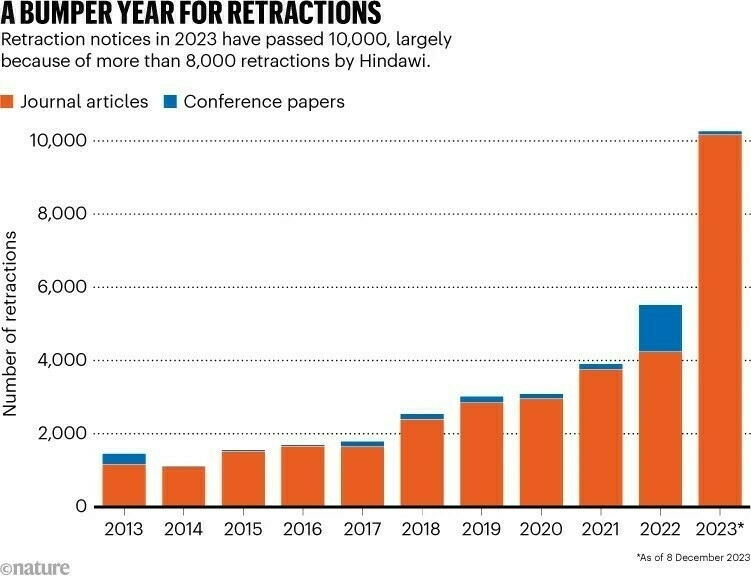
Good news if it means the scientific record is being cleaned up, bad news if it were to mean that the rates of fraud and serious errors are increasing.
To be fair, an absolutely mind-boggling number of papers get published each year these days. Those 10k papers are only equivalent to around 0.2% of papers that were published this year.

8000 of the papers were all from the same publishing house, Hindawi, an unwelcoming $35-40 million surprise for its recent owners, Wiley.





